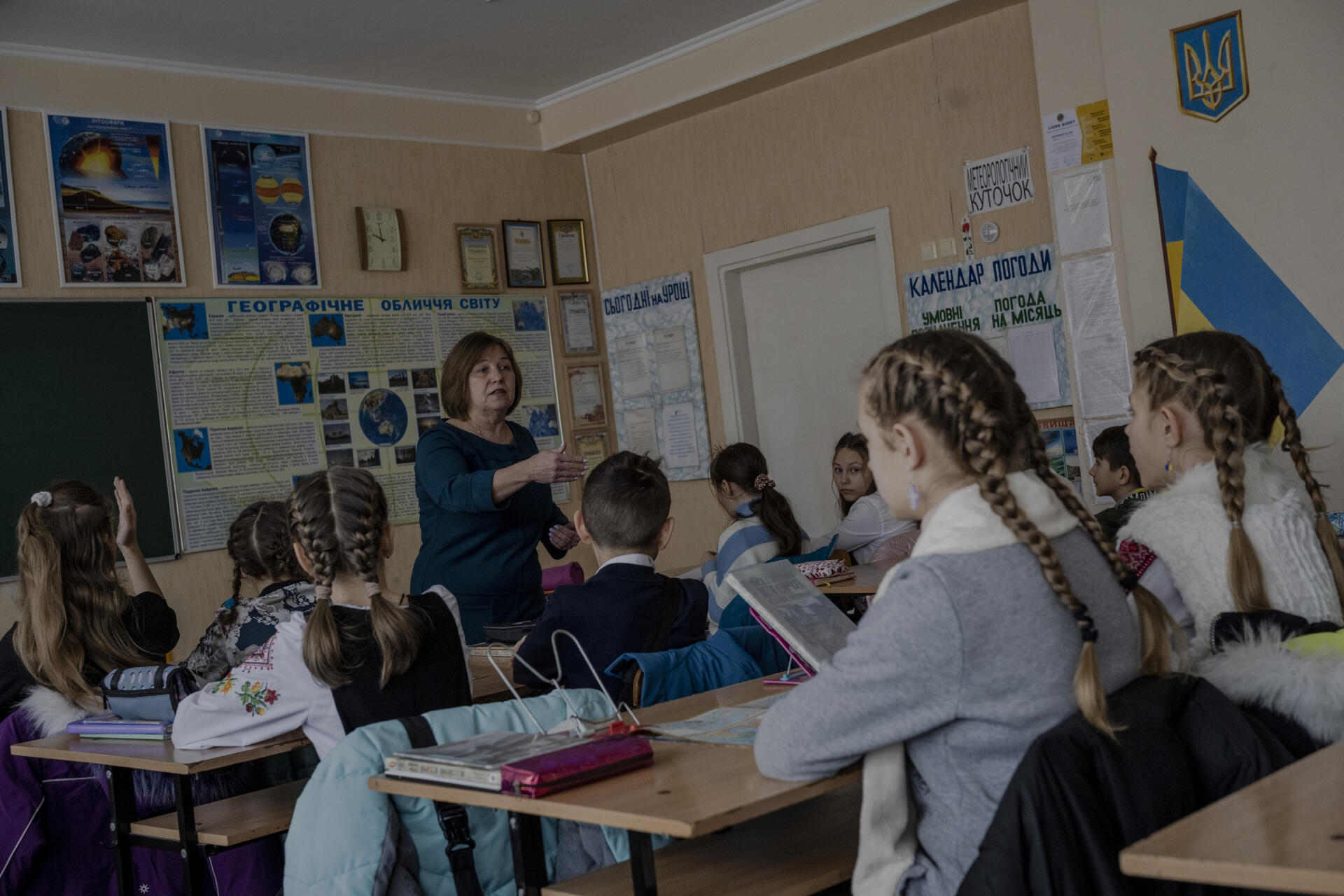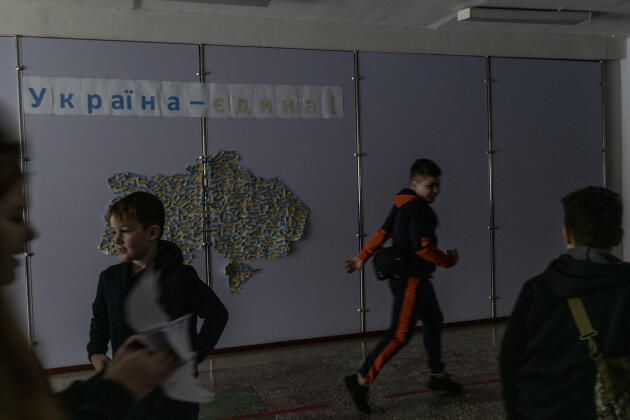The routine has set in. With each anti-aircraft alarm, the pupils of school n°33 of Tchernihiv, in the north of Ukraine, leave the class to go to take refuge in the anti-bomb shelter. Recently, it is also necessary to evacuate regularly because of the alerts to explosive devices, the time that the deminers inspect the establishment. On this February morning, however, a brief moment of respite allows the history teacher to unfold her lesson properly.

The subject of the day – the war between Persia and Greece – does not resonate by chance with what Ukrainians have been going through for a year. Natalia Nizhenete, glasses on the tip of her nose, advances in front of the thirty children from 11 to 12 years old. « I Ve century before Christ, Persia attacked Greece, a peaceful country, which defended itself courageously against this authoritarian empire. » The students listen carefully. On the wall, the Ukrainian national anthem appears in colorful letters next to a map of the country.
“Do you know why Persia lost the war? » Several fingers are raised: “Because the Greeks defended their homes, their families and their cities. » ” Absolutely. And what do you think of people who defend their homeland? » “They are heroes! »responds a small voice. “You see, history gives us examples of people willing to sacrifice their lives for their country, continues the teacher. Ultimately, it was a fight between two worlds: democracy and tyranny. »
“Why are we called ‘Nazis’? »
When the first Russian missiles fell on Ukraine on February 24, 2022, teachers were bombarded with questions: “Why is Russia attacking us? “Why are we called ‘Nazis’?” “How can a friendly country do this to us?” » And this one, even more difficult: “Are we going to survive? » “We were all scared and distraught”, recalls Natalia Nizhenete. Very quickly, she had to find answers.
His classes took a new turn. “I try to show students that, in the past, small countries were able to defend themselves against more powerful aggressors. It is very important to give them hope. » This history professor knows, above all, how highly strategic her subject is in these times of conflict: “It shapes your view of the world and forges your national feeling. »

Since the Russian invasion, another battle is being played out far from the front, in the classrooms. Less spectacular, it is nevertheless considered just as crucial to resist against Russia and build the Ukraine of tomorrow, rid of its Soviet heritage and resolutely turned towards Europe. In this fight, history is a weapon. What will we remember from this conflict? How to teach it at school so that children learn the “real” Ukrainian history, and not the falsified one disseminated by Kremlin propaganda?
You have 70.5% of this article left to read. The following is for subscribers only.
